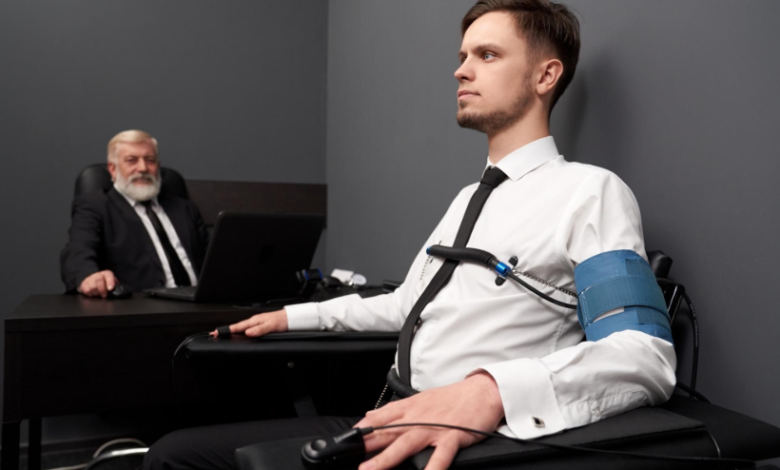Lie Detector Tests in Minnesota: The Function and Regulation of Polygraph Testing

Polygraph tests, more commonly known as lie detector tests, are frequently associated with crime investigations, pre-employment screenings, and matters requiring verification of truthfulness. These tests aim to detect deception by measuring physiological changes in a person’s body while they respond to questions. The principle is that when someone lies, they may exhibit stress or anxiety, which can be recorded through increased heart rate, blood pressure, respiratory changes, and galvanic skin response. In Minnesota, polygraph tests are used primarily by law enforcement agencies and in specific job sectors, but their application is guided by legal restrictions and public skepticism. Although not admissible in most courtrooms, these tests continue to serve as investigative tools, helping authorities gather insights when direct evidence may be lacking.
How Polygraph Tests Are Conducted
A polygraph test typically involves three main stages: the pre-test interview, the actual test phase, and the post-test analysis. During the pre-test interview, the examiner explains the test procedure, answers the subject’s questions, and establishes baseline physiological readings by asking general questions. The subject is then connected to the polygraph device, which records various physiological indicators. In the testing phase, the examiner asks a series of questions, including irrelevant (neutral), control (designed to elicit a response), and relevant (related to the investigation) questions. The responses are analyzed to identify patterns that suggest deception. Polygraph examiners must be highly trained, as interpreting results requires understanding how different individuals react under stress. In Minnesota, as in other states, only licensed professionals can administer polygraph tests, and they must follow strict procedures to ensure the reliability of the results.
Legal Regulations of Polygraph Testing in Minnesota
The use of polygraph tests in Minnesota is governed by both federal and state laws, particularly when it comes to employment. The federal Employee Polygraph Protection Act (EPPA) restricts most private employers from using polygraph tests for hiring or disciplinary decisions, with exceptions for security firms, government contractors, and companies dealing with controlled substances. Minnesota law further enforces these protections by limiting when and how polygraph tests can be requested or required. For law enforcement and government agencies, however, polygraph tests are often used during pre-employment background checks and internal investigations. Police departments, corrections facilities, and some state agencies may include polygraph testing as part of their screening processes, although participation is usually voluntary. In legal cases, Minnesota courts generally do not accept polygraph results as admissible evidence, unless both parties agree beforehand—a rare occurrence due to the disputed reliability of the technology.
Controversy Surrounding Accuracy and Ethics
Despite their widespread use, polygraph tests remain controversial because of ongoing questions about their scientific accuracy and ethical implications. Advocates of polygraph testing claim high accuracy rates—sometimes upwards of 80 to 90 percent—when tests are administered by experienced professionals under controlled conditions. However, many scientists and legal experts argue that polygraph tests do not directly detect lies, but rather measure physiological responses that may or may not be related to deception. A truthful person who is nervous could be flagged as deceptive, while a deceptive individual who is calm may pass the test. This potential for false positives and false negatives raises concerns, especially when decisions based on test results affect a person’s freedom, employment, or reputation. In Minnesota, these concerns have led to a cautious and limited use of polygraph tests, particularly in court proceedings and private employment matters.
See also: The Rise of Mushroom Gummies: A Tasty Path to Better Health
The Evolving Role of Polygraph Tests in Minnesota
While polygraph testing in Minnesota continues to be used in specific settings, the broader landscape of lie detection is evolving. Advances in neuroscience and behavioral analysis are leading researchers to explore alternatives such as brain-based imaging and artificial intelligence-driven technologies. Although these methods are still in developmental stages and not yet practical for routine use, they signal a growing desire for more reliable and objective tools in detecting deception. Until such alternatives become viable, polygraph tests remain a supplemental resource—used to support investigations rather than serve as conclusive evidence. In Minnesota, the use of polygraphs reflects a balance between investigative utility and the protection of individual rights, with regulations in place to ensure fairness and prevent misuse. Whether in pre-employment screening for law enforcement or as part of an investigative process, understanding the strengths and limitations of polygraph tests is essential for anyone encountering them in Minnesota’s legal or professional landscape.
Location in Minnesota
St Paul – 445 Minnesota St #1500, St Paul, MN 55101




